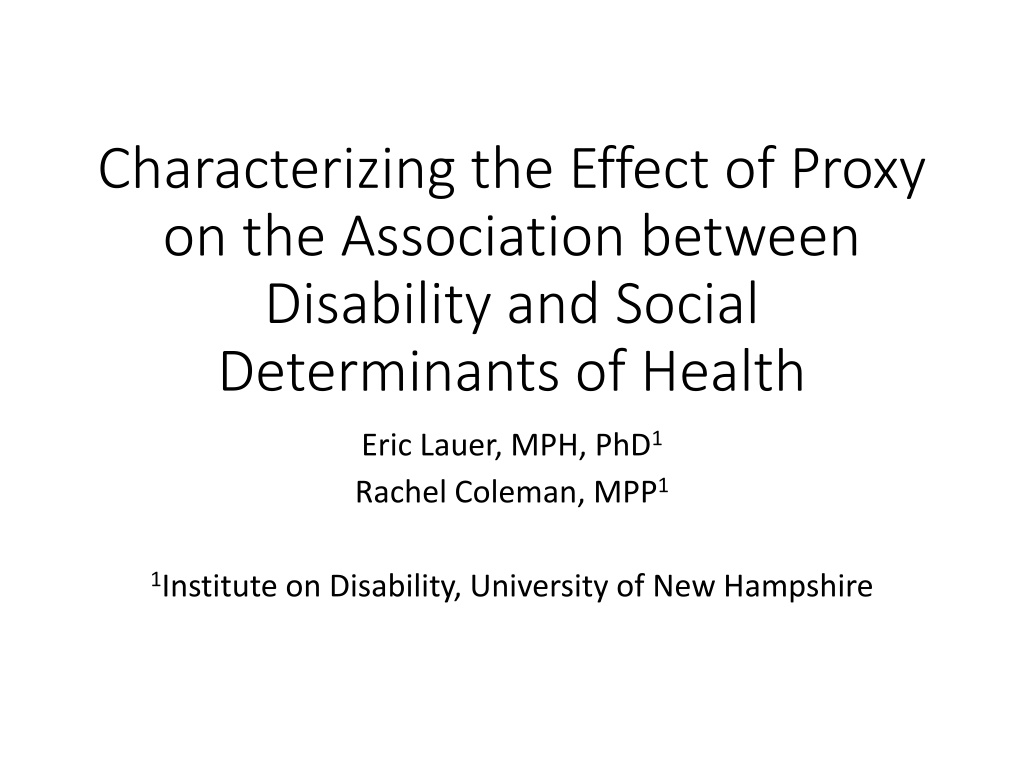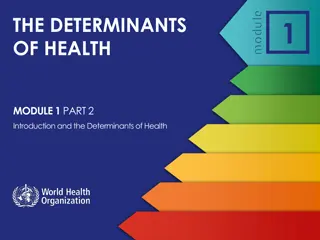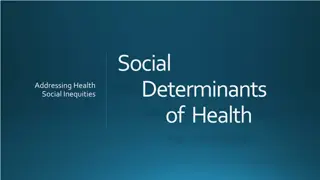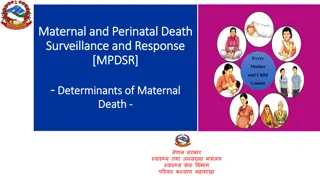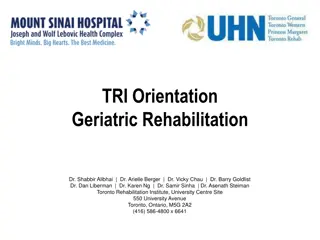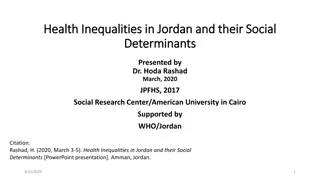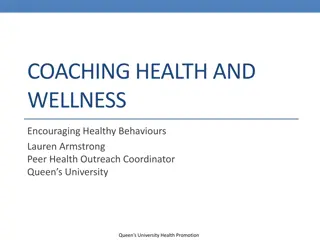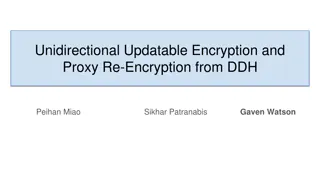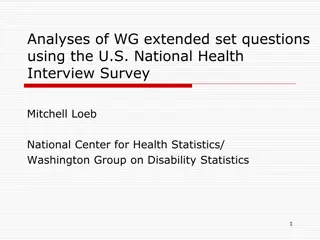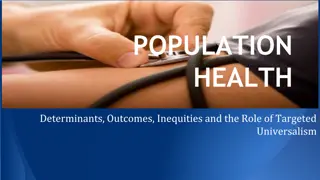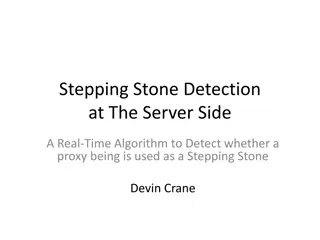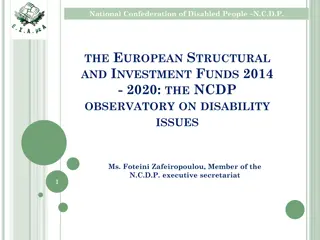Understanding the Impact of Proxy on Disability and Health Determinants Association
National surveys are evaluating standardized disability identifiers. The Washington Group Short Set and American Community Survey are being compared in the National Health Interview Survey. Limited research exists on these questions in disability research, providing an opportunity for analysis. The study aims to characterize the effect of proxy on the association between disability and social determinants of health. Development goals include policy relevance, comparability across populations, and appropriateness for censuses. Methods involve analyzing NHIS data from 2008-2009 and 2012-2017, focusing on family disability question sets.
Download Presentation

Please find below an Image/Link to download the presentation.
The content on the website is provided AS IS for your information and personal use only. It may not be sold, licensed, or shared on other websites without obtaining consent from the author. Download presentation by click this link. If you encounter any issues during the download, it is possible that the publisher has removed the file from their server.
E N D
Presentation Transcript
Characterizing the Effect of Proxy on the Association between Disability and Social Determinants of Health Eric Lauer, MPH, PhD1 Rachel Coleman, MPP1 1Institute on Disability, University of New Hampshire
Financial Disclosure The following personal financial relationships with commercial interests relevant to this presentation existed during the past 12 months: No relationships to disclose The presentation is part of a project of the StatsRRTC, which is funded by the U.S. Department of Health and Human Services, National Institute for Disability, Independent Living, and Rehabilitation Research (NIDILRR) under cooperative agreement H133B130015. This presentation does not necessarily represent the policy of the Department of Health and Human Services, and you should not assume endorsement by the Federal Government (Edgar, 75.620 (b)).
Background National surveys are considering changes to the annual inclusion of standardized disability identifiers These question sets include the Washington Group Short Set (WGSS) and American Community Survey (ACS) identifiers Both fielded in the National Health Interview Survey There has been limited research to understand and compare these questions in disability research. Opportunity to compare and contrast disability measurement and survey effects in the same survey
ACS & WGSS Question Topics Hearing Deaf or difficulty hearing (even with hearing aids)? Vision Blind or difficulty seeing (even when wearing glasses)? Cognition Difficulty remembering, concentrating, or making decisions? Ambulation Difficulty walking or climbing stairs? Self-care Difficulty bathing or dressing? Independent living or Communication Specific to ACS or WGSS, respectively
Development Goals Question sets developed with goals that include: Policy relevance Lengths appropriate for censuses Comparable across populations Development narratives recognize: General disability measurement Not comprehensive disability assessment Not identifying or a standard for true disabled population (if one exists) Limited by data collection processes
Methods 2008-2009, 2012-2017 NHIS data (8 Years) Family Disability Question and Functioning and Disability Files Two samples, using weights from each file Demographic and social factors were drawn from the person file Analyses Bivariate prevalence with 95% confidence intervals Multivariate logistic regression Hypothesis: Disability prevalence and disparities would be consistent for people with and without proxy across question sets Underlying demographic distributions would be similar across questions sets
Methods Disability and Proxy Definitions ACS responses (yes) versus Washington Group responses (a lot of difficulty and cannot do) Proxy defined different for each question set Family Respondent not true proxy Adult Sample Proxy Methodological Note (2008-2017 NHIS) ACS questions asked at end of family section (first) WGSS questions asked at end of adult section (second)
Percentage of Proxy Responses in the Family and Adult NHIS Samples 100 90 Percent (95% Confidence Interval) 80 70 60 45.6% 50 40 30 20 10 1.8% 0 Family/FamD Adult/FuncD Proxy
Percentage of People with Disabilities by Family and Adult NHIS Samples, Question Type, and Proxy Status 100 90 Percent (95% Confidence Interval) 80 70 60 46.5% 50 40 30 19.0% 16.9% 20 14.3% 9.0% 8.3% 10 0 Overall Self-Report Proxy Overall Self-Report Proxy Family/FamD - ACS Adult/FuncD - WGSS
Age Distribution for Proxy Responses and People with Disabilities (WGSS) in the Adult/FuncD NHIS Sample 30 Adult-Prox Percent (95% Confidence Interval) 25 WGSS Diss 20 15 10 5 0 18 to 24 25 to 34 35 to 44 45 to 54 55 to 64 65 to 74 75+ Age
Distribution of Age for Proxy Responses and People with Disabilities (ACS) in the Family/FamD NHIS Sample 30 Family-Prox Percent (95% Confidence Interval) 25 ACS Dis 20 15 10 5 0 18 to 24 25 to 34 35 to 44 45 to 54 55 to 64 65 to 74 75+ Age
Risk of adverse Social Determinants for People with Disabilities by Question Type and Proxy Status 7 Odds (95% Confidence Interval) 6 5 4 3 2 1 0 SR P SR P SR P SR P SR P SR P ACS WGSS ACS WGSS ACS WGSS Chronic Conditions Poverty Pain
Discussion Consistent but different directions of effects Prevalence and disparities Disability prevalence by proxy for WGSS is a big departure (but small number) Evidence that survey design and proxy implementation impact disability reporting New NHIS design and cross-survey comparison Differences in accuracy of self-report vs. proxy Cross-survey study needed Implications for basic, descriptive epidemiology
Discussion Proxy is a confounding conceptual and methodological factor Proxy comes first Who responds to the survey matters Can we use proxy as a modifying factor? Preliminary evidence suggests considering sensitivity analyses by proxy Small subpopulations
Thank you Eric A. Lauer Institute on Disability College of Health and Human Services University of New Hampshire Durham, NH 03824 Eric.lauer@unh.edu (US) 603-862-4829
